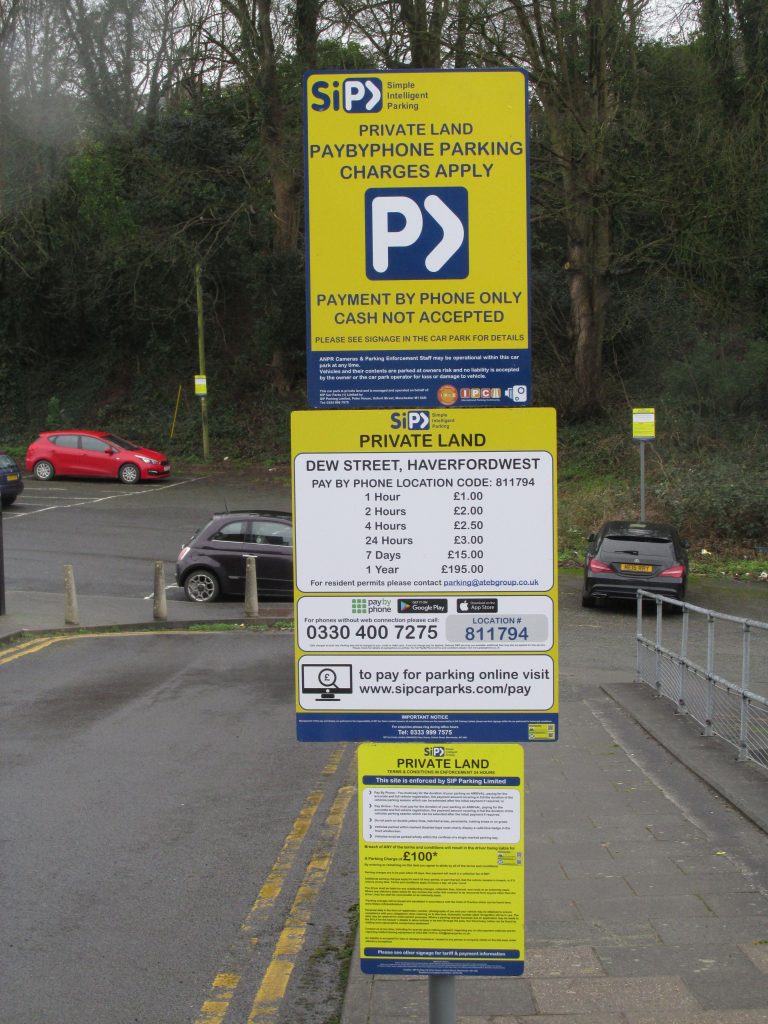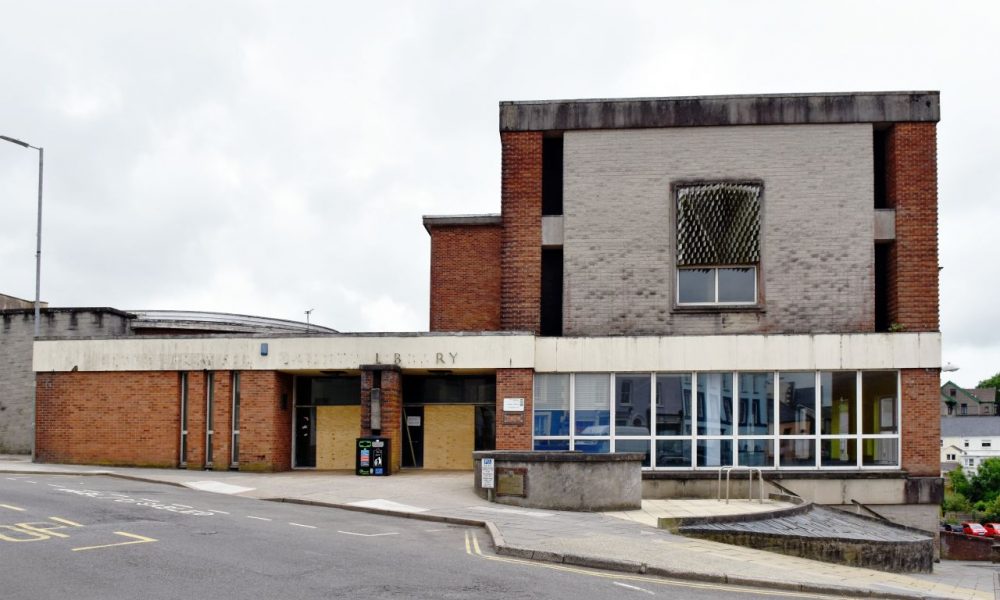News
Health Board appeal for public to look after family members at home to ease demands

HYWEL DDA HEALTH BOARD has appealed to the public to look after their family members at home in order to free up beds for more critically ill patients.
The Health Board has said there is currently an unprecedented demand on care services across Pembrokeshire, Carmarthenshire and Ceredigion.
In a statement, they have asked members of the public to look after their loved ones at home or to take a family member, who is in hospital and waiting to be discharged, home in order to free up beds to try and ease the demands.
The Health Board said the demand is leading to significant delays in care provision which is in turn leading to leading to significant bed shortages and lengthy ambulance waits at A&E departments, which also means that paramedics are unable to respond to other 999 calls in the community.
Social care and health teams are doing everything possible to support people who are well enough to leave hospital but need ongoing care.
Priority is being given to the most vulnerable, and alternative health and care packages are being offered as a short-term measure. More carers and health staff are also being recruited to support people in need.
The Health Board has said that spending as little time in hospital is better for patients and means that NHS beds can be freed up for others with urgent care needs.
Supporting older patients to get home from hospital efficiently is an important part of their recovery and it also protects them from negative consequences of hospital admission, such as hospital acquired infection, falls and a loss of independence.
A spokesperson for the Health Board said: “If you have a relative or loved one in hospital who is well enough to go home, but is waiting to be discharged with homecare and / or community health support, please consider if you may be able to help them to get home more quickly – you and your family may be in a position to support them at home.
“If your relative is waiting for a formal package of care, you may be able to offer support and care on a short term, temporary arrangement or you might want to consider whether your loved one could be supported in a temporary residential or nursing care setting.
“If you feel that this is an option that you could consider, please speak to the ward manager or your social worker to explore further.”
To help alleviate pressures at hospital sites, a number of Same Day Emergency Care (SDEC) units have been opened, which you may be referred to if you have a condition that can be seen and treated quickly.
Hywel Dda University Health Board’s Director of Nursing, Quality and Patient Experience, Mandy Rayani, said: “We are dealing with a combination of high numbers of attendances, particularly in our Emergency Departments, and challenges in health professional staffing.
“Our GP practices and hospitals are busy and while many of the COVID regulations have been removed, we still need to follow specific requirements for the safe treatment of those patients with COVID-19 and those without.
“We are working with our local authorities as there are difficulties in discharging some patients due to similar staffing challenges the social care sector is facing. This means we have very limited beds available to accommodate patients who need admission.
“Our teams are helping patients by their clinical priority, but this does mean that in some cases, waits in our Emergency Departments are hours long and far in excess of what we would strive to deliver.
“If you need medical help, please think carefully about the services you choose.”
If you are unwell and unsure what to do, you can visit the online symptom checker to cross-check your symptoms against a number of common ailments and if directed call NHS 111.
Only attend an Emergency Department if you have a life-threatening illness or serious injury, such as:
- Severe breathing difficulties
- Severe pain or bleeding
- Chest pain or a suspected stroke
- Serious trauma injuries (eg. from a car crash)
If you have a less serious injury then please visit a Minor Injury Unit. They can treat adults and children over 12-months of age, with injuries such as:
- Minor wounds
- Minor burns or scalds
- Insect bites
- Minor limb, head, or face injuries
- Foreign bodies in the nose or ear
There are minor injury or walk-in services at Cardigan Integrated Care Centre, and Tenby Hospital.
Many community pharmacies can also provide walk-in, common ailment or triage and treat services without an appointment.
A spokesperson concluded: “Your support not only helps your loved one, but it is a huge support to the NHS and social care services as well.
“Please help us to make our service safer by sharing this information with friends and family.”
Community
New parking rules spark concern at Dew Street site

Residents question phone-only payments, rising permit costs and future of former library building
RESIDENTS in Haverfordwest’s upper town say new parking rules behind the former County Library on Dew Street risk excluding older and less tech-savvy drivers, as concerns grow over both rising permit prices and the uncertain future of the prominent community building.
The car park is owned by Ateb Group, which allowed free public use over Christmas. However, signs installed this week state that drivers must pay either by phone or online.
Campaigners say both options effectively require a smartphone or internet access, leaving some motorists without a practical way to pay.
Mike Daffern, acting secretary of the Dew Street Campaign, told The Herald: “Realistically these are the same method. Both depend on a phone. For many older people, or anyone without mobile data, that simply isn’t accessible.
“Government guidance says there should be more than one way to pay. Most car parks still offer cash or card. We feel this discriminates against some of the very people who rely most on town centre parking.”

Permit prices questioned
Residents also say they were previously informed that Ateb intended to mirror the charging structure used by Pembrokeshire County Council.
They expected this would reduce the cost of residential permits. Instead, several have reported being quoted figures more than four times higher than equivalent council permits, alongside what they describe as a 30 per cent rise on last year.
One nearby resident, who did not wish to be named, said: “We were told it would be in line with the council. When the price came through it was nowhere near. For some households it just isn’t affordable.”
The Herald has approached Ateb for clarification on its pricing structure and the choice of payment systems.
Building left in limbo

Beyond parking, frustration is mounting about the long-term future of the former library itself.
Planning permission to refurbish the site was granted in 2023, but residents say little visible progress has been made. There is speculation the housing association may instead base operations in Milford Haven following the closure of Meyler House.
Campaigners argue that if the building is no longer required for offices, alternative community uses should be explored rather than allowing further deterioration.
A petition signed by ninety-five locals has been submitted to Cadw requesting the structure be considered for listing.
The request is backed by Royal Commission on the Ancient and Historical Monuments of Wales and The Twentieth Century Society, both of which recognise its architectural significance as an example of late 20th-century civic design. The building also features in Simon Phipps’ book Brutal Wales / Cymru Friwtalaidd, which celebrates modernist architecture across Wales.
Mr Daffern said: “It’s part of Haverfordwest’s story. Even people who don’t love the look of it accept it’s an important public building. Leaving it empty helps no one.”

Temporary arrangement
Public use of the car park may only ever be short-term. The 3.5-acre site, including the former library, was sold by the council for £250,000 in 2022.
A consultation held in early 2024 on potential redevelopment proposals drew criticism, with some residents describing suggested housing plans as “cut-price” and out of keeping with the conservation area surrounding the historic upper town.
No formal planning application has yet been submitted.
Residents say clearer communication is needed on both the future of the land and day-to-day parking arrangements.
Mr Daffern added: “People understand the site will change one day. But while it’s open, it should be fair and accessible. All we’re asking for is common sense and proper engagement with the community.”
international news
Mandelson quits Labour over Epstein controversy

Former cabinet minister says stepping down is ‘in best interests of the party’ as questions raised over historic payments
LORD MANDLESON has resigned his membership of the Labour Party, saying he does not want to cause “further embarrassment” following renewed controversy over his past links to convicted sex offender Jeffrey Epstein.
The former cabinet minister and one-time UK ambassador to the United States confirmed his decision in a letter to Labour’s general secretary after fresh documents released by the US Department of Justice appeared to reference him in connection with Epstein’s finances.
The files suggest that three payments of $25,000 — totalling $75,000, about £55,000 at today’s exchange rates — were allegedly made to Peter Mandelson in 2003 and 2004.
Lord Mandelson said he had “no record or recollection” of the transactions and believes the allegations may be false, but intends to investigate the matter himself.
In his resignation letter, he wrote that he felt “regretful and sorry” to be linked again to what he described as the “understandable furore” surrounding Epstein.
He added that stepping down from party membership was the responsible course of action while he reviewed the claims.
“I do not wish to cause further embarrassment to the Labour Party,” he said. “I have dedicated my life to the values and success of the party and believe I am acting in its best interests.”
Ambassador role ended
Lord Mandelson had been appointed the UK’s ambassador to Washington by Prime Minister Keir Starmer in December 2024.
However, he was removed from the post last year after earlier revelations about his past friendship and contact with Epstein, including emails showing communication after the financier’s 2008 conviction.
The latest release of files has also included photographs said to show Lord Mandelson alongside an unidentified woman. He said he could not place the location or circumstances of the images.
There is no suggestion that appearing in the documents or photographs indicates criminal wrongdoing.
‘Deep regret’
Earlier this weekend, Lord Mandelson reiterated his regret for ever having known Epstein and apologised “unequivocally” to the women and girls who suffered abuse.
“I want to repeat my apology to the women and girls whose voices should have been heard long before now,” he said.
Epstein died in prison in 2019 while awaiting trial on sex trafficking charges, but investigations into his network of associates continue to generate political fallout on both sides of the Atlantic.
Labour has not yet issued a detailed statement beyond confirming it had received Lord Mandelson’s resignation.

Health
Doctor struck off after sexual misconduct findings at Withybush Hospital

Hospital medic erased from register for second time after tribunal finds abuse of trust and repeated inappropriate behaviour
A DOCTOR who worked at Withybush Hospital has been struck off the medical register after a tribunal found he sexually harassed junior colleagues and abused his position of trust.
Dr Velmurugan Kuppuswamy was erased from the register by a panel convened by the General Medical Council following findings that he made inappropriate sexual comments, engaged in unwanted physical contact, and displayed what was described as a pattern of sexually motivated behaviour towards more junior members of staff.
The Medical Practitioners Tribunal Service heard the misconduct occurred over several weeks between August and September 2021 while he was working at the Haverfordwest hospital.
The panel concluded he made inappropriate remarks to female colleagues at a social event and touched staff without their consent. His conduct was described as repeated, targeted, and exploitative of the power imbalance between senior and junior medics.
Catherine Moxon, chairing the tribunal, said the behaviour represented a clear abuse of his professional position and a serious failure to maintain appropriate boundaries.
The tribunal found his actions undermined colleagues’ dignity and confidence and risked damaging public trust in the medical profession.
Although Dr Kuppuswamy denied the allegations and pointed to his clinical competence, the panel ruled the misconduct was serious, persistent, and not easily remediable. Erasure, it said, was necessary to protect the public and maintain confidence in doctors.
His name has now been removed from the medical register with immediate effect.
Troubled history
This is not the first time Dr Kuppuswamy’s fitness to practise has been called into question.
Tribunal records show he was previously struck off in 2012 after being found dishonest during an application and interview for a postgraduate cardiology training post at an NHS deanery in England.
The earlier hearing found he falsely claimed to have submitted a Doctor of Medicine thesis, said he was a member of the Royal College of Physicians, and stated he had passed a practical clinical skills assessment.
He initially admitted the deception before retracting parts of his account. The tribunal concluded he had maintained dishonest accounts and wrongly accused another witness of misleading evidence.
He was erased from the register and returned to India, where he later worked at a cardiac hospital.
Return and fresh concerns
In 2020, he successfully applied to be restored to the UK register despite opposition from the GMC, which raised concerns about the timing of his remorse and the lack of independent evidence about his overseas work. The regulator also noted he had not undertaken ethics training.
At the time, a tribunal accepted his assurances that he had changed, describing his evidence as “compelling, heartfelt and genuine,” and concluded that a well-informed member of the public would not be concerned about his return.
Shortly after being reinstated, he began working shifts at Withybush Hospital, part of Hywel Dda University Health Board.
Within months, the fresh allegations that have now led to his second erasure emerged.
The health board has not publicly commented on the outcome of the hearing.
-

 Health4 days ago
Health4 days agoConsultation reveals lack of public trust in health board
-

 News5 days ago
News5 days agoCaldey still unsafe, survivors warn — despite Abbey’s reform claims
-

 Community5 days ago
Community5 days agoPembrokeshire students speak at national Holocaust Memorial Day event
-

 News7 days ago
News7 days agoWales warned against single police force as Lib Dems cite Scotland ‘lesson’
-

 Crime7 days ago
Crime7 days agoMilford Haven man appears in court charged with burglary and GBH
-

 Business7 days ago
Business7 days agoDuke of Edinburgh Inn in Newgale on the market for £325,000
-

 Local Government6 days ago
Local Government6 days agoTribunal over former Neyland councillor’s conduct adjourned
-

 News5 days ago
News5 days agoKurtz raises Gumfreston flooding in the Senedd as petition deadline nears






































